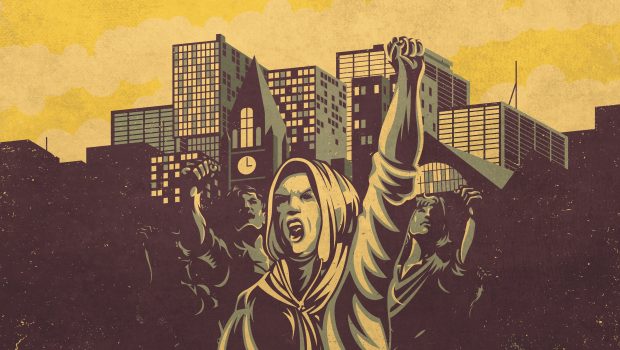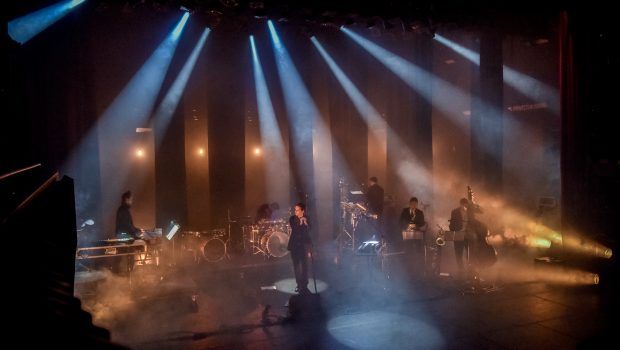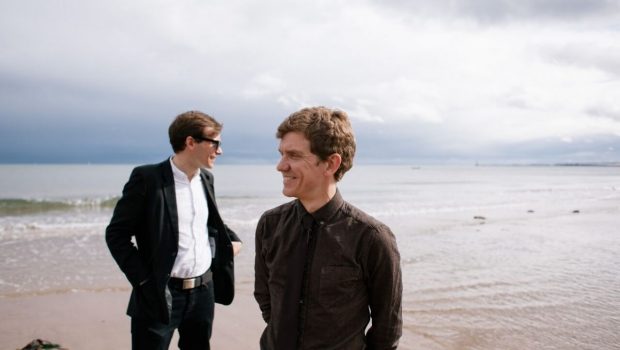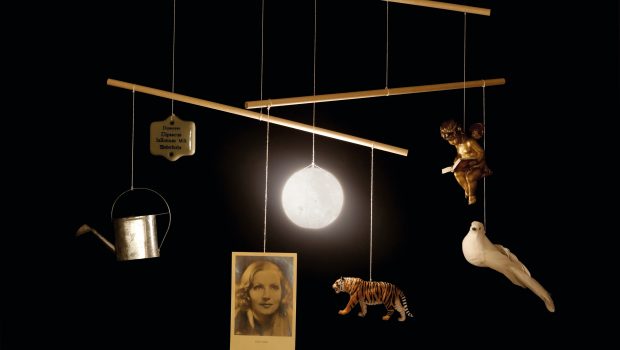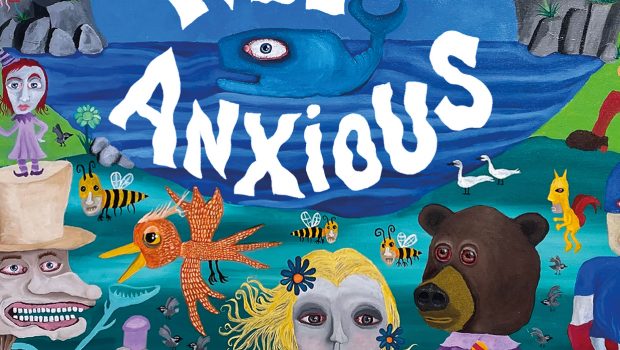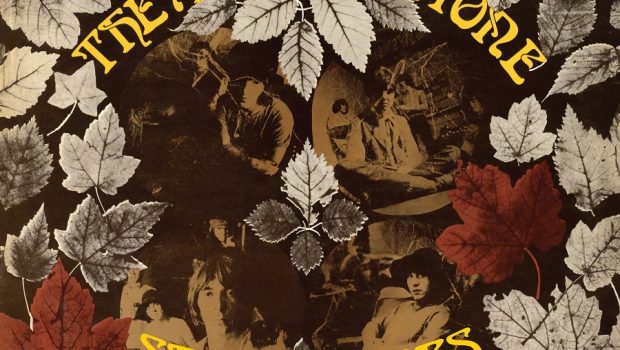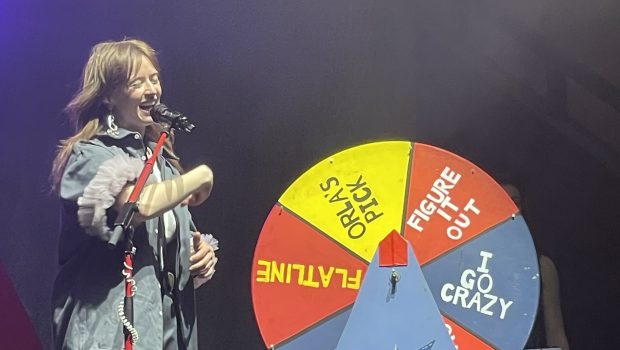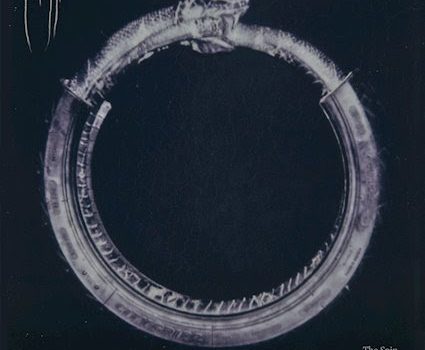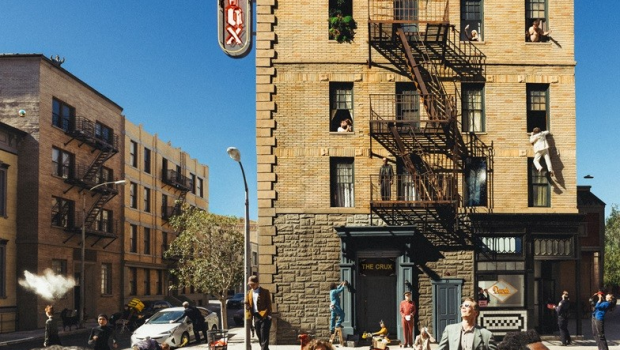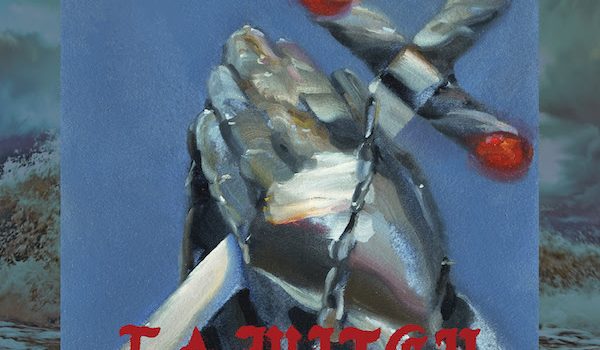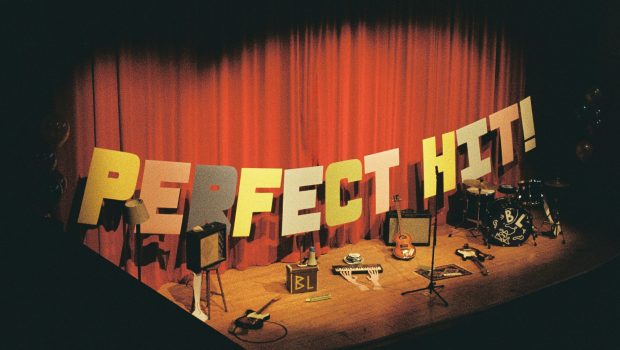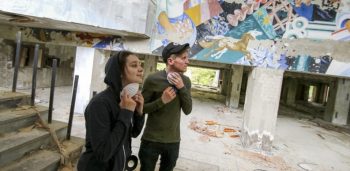
Birdsong: Stories From Pripyat
– HOME, MANCHESTER –
I’m watching Example’s 2006 documentary about Pripyat in Chernobyl. Tonight, I’ll be watching Clara Casian’s documentary Birdsong: Stories from Pripyat, which is being screened at HOME with a brand new score by Robin Richards performed live. But that isn’t for a few hours yet, so currently I’m watching Example’s documentary instead.
‘Example?!’, I hear you splutter, spraying tea all over your chosen reading device. ‘You mean Example the rapper, producer, songwriter, and occasional ITV2 panel show guest? The one who did Love Kickstarts Again and Changed The Way You Kissed Me?’ Yep, that’s the one! In 2006, he wrote a song called What We Made about the terrible destructive power of man. The song’s promo video is shot in Pripyat, and the video’s page on YouTube describes its creation process: ‘To fully show the extent of mankind’s destructive ways Example’s video would need to have been shot in a war zone or even on the soundstage of a disaster movie. The crew had access to neither but what seemed to be the most farfetched idea at the treatment stage of the video turned out to be the ideal location for this music promo’ While they were there, the crew also shot an 18-minute documentary about the Chernobyl disaster.
I know what you’re thinking – ‘Wow, that’s unexpected! I hope he treats this terrible catastrophe appropriately, and doesn’t make the whole thing feel like he’s just there on holiday. After all, it does sort of seem like he’s picked this disaster zone more or less at random because it was vaguely related to his song, it would be pretty dodgy of him to just exploit a huge humanitarian crisis for its emotional impact, and for him to not treat it with the care and respect it deserves.’
I’m sorry to say, reader, that Example does not treat this huge humanitarian crisis with the care and respect it deserves. The whole thing comes across as if he thought he was going on holiday, and it all went wrong and he’s actually booked tickets to the wrong place – at one point he ponders ‘I don’t know whether this is fun or not’, as if trips to radioactive fallout zones were ever meant to be fun, and suggests the main thing he’s here for is for the great photos he can take back home to his friends and family. There’s another scene in which he jumps on and off a piece of radioactive moss, chanting ‘Radioactive, not radioactive. Radioactive, not radioactive’, as if he’s playing the Floor Is Lava and doesn’t really understand the rules, only it’s not imaginary lava, it’s actual radioactive moss. When he’s tested for radioactivity, he quips cheekily to camera ‘Let’s just hope it doesn’t test for vodka!’
It’s not all bad – to his credit, Example does give the viewer brief history lessons. He also informs the viewer, while feeding some radioactive fish, ‘as all fish do, they love Hovis.’ So I am learning. But if there’s one thing I am definitely getting an education in from this film, it’s how easily an attempt to deal with a sensitive topic like this can go very wrong if not handled with care.
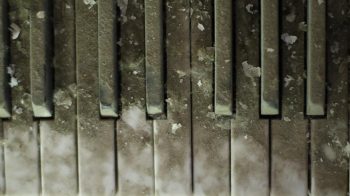
Birdsong: Stories From Pripyat
Robin Richards, composer behind the soundtrack I’ll be hearing tonight, may be better known to readers for his work with alternative indie band Dutch Uncles. Richards is a formally educated neo-classical composer, trained in the ways of classical composition by Joe Duddell – a contemporary composer who you might recognise from his work as an arranger for everyone from Elbow to New Order, and as composer-in-residence for Festival Number 6. Richards has spoken before about the classical influences on his work with Dutch Uncles – ‘for example the measured, rhythmic work of Steve Reich, and the harmonic diversity of Igor Stravinsky’ – and in an feature for Clash published in the lead-up to tonight’s premiere, Richards has handily set out some of his major influences on this piece. Reich and Stravinsky feature again, as do Jonny Greenwood, Kate Bush, and Jeff Beal’s soundtrack to House of Cards. Jonny Greenwood is no surprise here – like Richards, he’s a musician with interests lying somewhere between the alternative rock and classical worlds (perhaps the best example of this is Radiohead’s ongoing mutual admiration with Steve Reich – Greenwood has performed and recorded Reich’s Electric Counterpoint many times, and Reich’s piece Radio Rewrite takes Radiohead songs as source material). I’ll be interested to see how the rest of these influences might come in.
At HOME, the lights go down, and before the main event begins, we are shown the premiere screening of Wizard, a short film by Nicholas Middleton and Remi Weeks, also scored (prerecorded, not live) by Robin Richards. This is a beautifully shot documentary about a witch doctor in Malawi, with lots of long, still, black and white shots of Dr. M’Bwana and his patients. Richards’ soundtrack, a measured, reflective score for marimba, piano and synthesisers, is very much his own – the same steady, driving rhythms and slightly askew harmonies that characterise much of his work with Dutch Uncles can be found here again.
Wizard ends, and the musicians who will be playing tonight’s score enter – a string quartet, a pianist, and Richards himself. This is Richards’ second time bringing a live soundtrack to HOME – in May 2015, he composed and performed a new score for the 1928 film Lonesome, in collaboration with RNCM composition students. As he did then, Richards is playing bass on his own composition tonight, alongside the rest of the live ensemble and prerecorded synthesisers. The piece begins with recorded birdsong – the birds’ melodies are then taken up by members of the string quartet, build, then are joined by piano and bass, and developed into a full overture. I’m reminded of how, in his Clash article, Richards talks of his admiration for the way the bass guitar is used as a lead instrument in Kate Bush’s Houdini, and the way ‘the string quartet bounces off a chorus-laden fretless bass’. Richards is playing from memory, without a score – not something that would be completely amiss in classical playing (especially considering he did write the thing himself, so nobody is more likely to know the piece inside out than him), but definitely the norm in the alternative rock realm. Instead, he has a pedalboard at his feet, and his basslines are rather groovier than one might expect from a classical piece. I take a moment to imagine what the music I’m hearing might be like played by the Dutch Uncles lineup, imagining drums and Duncan Wallis singing over the top.
The overture finishes, and the film begins. The documentary is put together from archive footage of Pripyat, and shots filmed on location there by Casian. Overlaid are text excerpts from various poems related to the disaster, and from interviews the filmmakers conducted with evacuees and liquidators (the crew tasked with cleaning up contaminated areas). Many shots are extreme close-ups of textures, minute threads and surfaces. Others are portraits of Pripyat’s inhabitants, or of cleanup officials. Shots of nature are prevalent throughout. Especially towards the end of the film, the plant and animal life of Pripyat comes to the fore – trees, moss, cows, cats, donkeys, and the birds that give the piece its name.

Birdsong: Stories From Pripyat
Richards names Steve Reich’s 1988 piece Different Trains as a major influence on his score, and that much is clear – in some of his rhythmic and harmonic language, but also (Example, I hope you’re reading this and taking notes) in the way it approaches the problem of representing difficult topics. In the case of Different Trains, that topic is Holocaust. Reich uses recordings of Holocaust survivors and train drivers as his source material, then takes the pitches and melodies of the speakers’ voices as material to be played by string quartet. In live performances of the piece, the recordings are played on tape recorders, along with the pre-recorded sounds of three string quartets, and a fourth live string quartet plays live. By doing this, Reich puts the voices and experiences of the individuals who were directly involved first, and Reich’s music becomes a kind of commentary on those voices. Reich himself said ‘the piece thus presents both a documentary and a musical reality and begins a new musical direction. It is a direction that I expect will lead to a new kind of documentary music video theatre in the not too distant future.’
Birdsong is one realisation of that new musical direction – as in Different Trains, Robin’s accompaniments are commentaries and representations of what we see on screen. Robins has said of Liquidators, an extract from Birdsong (which you can hear below), ‘the rhythmic jostling of the strings representing the movement of the workers, and the deep synthesisers representing the overriding radiation.’ One notable difference between Birdsong and Different Trains – in Birdsong’s score, the only sounds directly transcribed for the ensemble, played exactly at the recorded pitches and melodies by instruments, are those of Pripyat’s birds. I asked Richards after the show why this was, and why, in contrast to Different Trains, we very rarely hear live voices in Birdsong. He tells me that originally voice-overs played a larger part in the soundtrack, but they decided that presenting the text from their interviews visually, as written words on screen, was more effective – now the only spoken voices that remain are a few exclamations that serve to structure the piece. As for why the birdsong is the only transcribed material, Robins told me that one thing he found striking about Pripyat is the way nature is adapting and moving on from the disaster in a way humans, perhaps, are not. Wildlife is flourishing in the area, as the footage in Birdsong shows. The sound for this piece, then, is presented in three distinct ways: archive audio is shown as it is; Richards’ interpretation of specific events is played by instruments; but only birdsong, the sound of nature, is heard as both direct recordings and as mirrored by instruments. In the end, nature comes out on top.
I also ask Richards if he’s seen Example’s documentary, and then immediately regret it, because it feels a bit tabloid. He tells me he has, and speculates Example had to go through many of the same radiation checks as they did, and then I change the subject because I don’t want him to feel like I’m prodding him to compare his own work with Example’s. I also realise I need to get over it, because I’ve been telling anyone who’ll listen how bizarre I think Example’s documentary is and it’s probably getting boring, and scuttle off to think about what I’ve done. In my defence, I haven’t said to anyone ‘if you can’t be a good Example, be a terrible warning’, and that took a lot of willpower because I think that’s a really good joke. All in all, tonight has been a fascinating and sensitive look at a topic that isn’t easy to handle with care.
